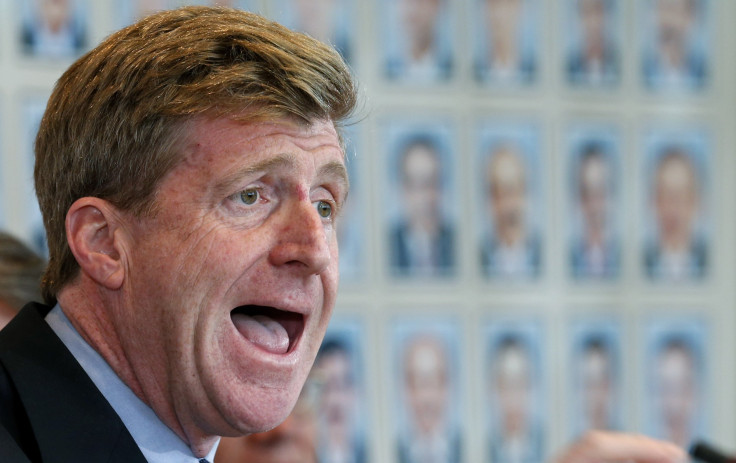Patrick Kennedy, JFK’s Nephew, Advocates For Mental Health Parity; Says Equal Treatment Is A ‘Civil Rights Issue’

For years, mental health treatment wasn't placed on equal standing with the medical treatment of physical illness; people with mental illnesses were often stigmatized. Advocates of mental health expansion under the new healthcare law, including former congressman Patrick Kennedy, are urging healthcare officials to pay closer attention to the people's mental health needs, especially in light of mental disorders surrounding U.S. veterans. Former soldiers, struggling with post-traumatic stress disorder, depression, and other ailments, lack proper mental health treatment, as 22 veterans per day commit suicide, according to a Department of Veterans Affairs report.
"I see this not only as a medical issue, where we need to treat the brain like any other organ in the body, I see this as a civil rights issue,” former congressman Patrick Kennedy told an audience in Rhode Island Tuesday evening, according to the Lincoln Journal Star. “People are being denied dignity and treatment simply because of an immutable characteristic of their genetic predisposition and the environment they come from.”
Patrick Kennedy, former Rhode Island congressman and the nephew of former president John F. Kennedy, has been travelling to various events to raise awareness about mental illness treatment in America. He was one of the primary sponsors of the 2008 Mental Health Parity Act, which stipulated that mental illness be treated the same as physical illnesses. Two years later, in 2010, President Obama signed in the Affordable Care Act, often referred to as Obamacare, which also requires mental health parity or equality, and will “provide one of the largest expansions of mental health and substance use disorder coverage in a generation,” according to the U.S. Department of Health & Human Services Office of the Assistant Secretary for Planning and Evaluation.
"I was proud to be the sponsor of a law in this country that says the brain is part of the body and that our medical system ought to treat the brain like it would any other organ of the body," Kennedy said at a Hope and Recovery Luncheon at the Rochester East House, according to YNN.
Vice President Joe Biden joined Kennedy and Health and Human Services (HHS) Secretary Kathleen Sebelius for a two-day forum in Boston that marked the 50th anniversary of JFK signing the Community Mental Health Act, which significantly altered the way mental health was treated in the U.S. and established community mental health centers throughout the country. This ultimately led to the branch of “behavioral healthcare” to open up, which focused primarily on treating those with substance addiction. However, advocates for mental health expansion like Kennedy and Biden believe there is still a gap in treatment; in a 2008 study, researchers found that mental illnesses, though often leading to physical disabilities, were under-treated compared to physical disorders.
Many people aren't getting the mental health treatment they need, partially because there are not enough mental health services; primary care doctors are often faced with patients who turn to them with emotional concerns on top of physical ones. But with the healthcare overhaul, which may lead to an additional 2.3 million people requiring mental health treatment under Medicaid, doctors and health officials must now confront how to provide proper mental health services. County health departments in L.A., for example, are training physicians to better understand and identify mental disorders, and to collaborate with their patients' therapists more closely. "It's not enough to help more Americans seek treatment," President Obama said in a speech underlining the importance of mental health over the summer, according to the LA Times. "We also have to make sure that the treatment is there when they're ready to seek it."
Meanwhile, during the week of the anniversary of JFK's Community Mental Health Act, the former president's nephew hopes to raise awareness about the mental health issue and stigma. Kennedy is focusing primarily on veterans, who are notorious for needing mental health services the most, but often lack them and are driven to suicide. "I believe the test for the Mental Health Parity and Equity Act, which I was privileged to write with my father in the Senate… is whether we as a nation can change our attitudes toward these brain injuries and the experience of trauma that our service members have experienced," Kennedy told USA Today.



























